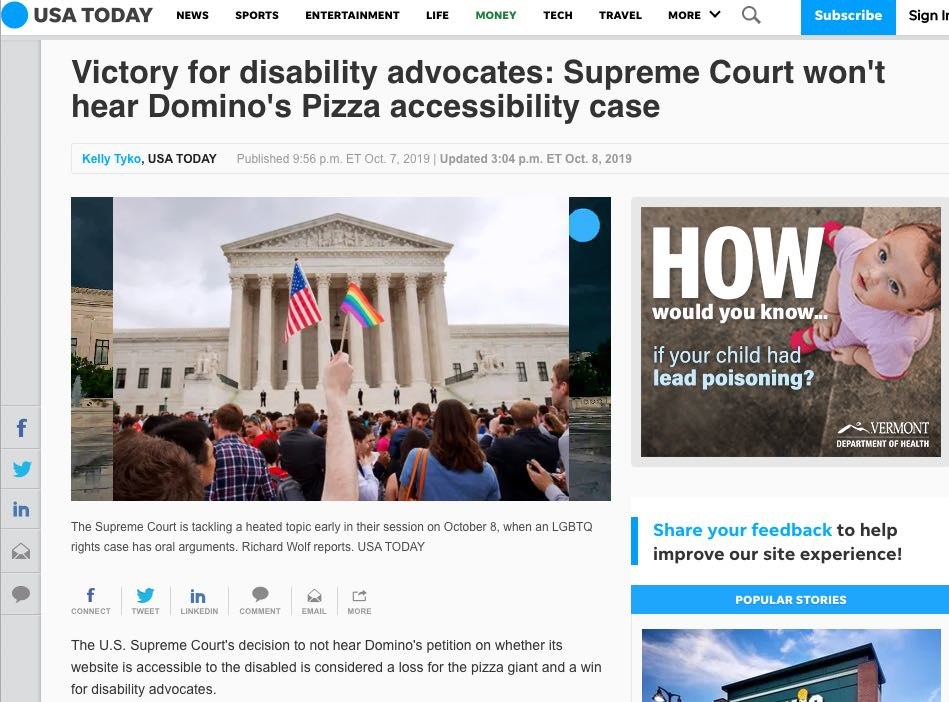
Will Supreme Court Pass on Domino's Cause New Surge in Web-Related ADA Lawsuits?
Business groups and web accessibility advocates have been holding their breath to see whether the Supreme Court will hear Domino's web accessibility ADA case. If yes, then business groups expected the conservative court to rule favorably for businesses who have faced an onslaught of web-relate ADA lawsuits in recent years. If no, then accessibility advocates would cheer to have the 9th Circuit decision to stand and force the case to move forward.
The Supreme Court said they would not hear the case. Advocates cheered.
As such, this upholds the 9th's decision that
1. ADA Title iii covers websites with a nexus to a physical place of public accommodation.
2. Even in the absence of website accessibility regulations, imposing liability on website owners does not violate due process.
Next, the case returns to the original District Court to be heard, however its expected that Dominos will settle out of court.
Will This Now Lead To A Larger Surge in Web-Related ADA Lawsuits?
Had this gone to the Supreme Court, we would have expected this court to side with business interests. Having failed, the existing - very clear decision(s) that websites are to be considered places of public accommodation and therefore protected civil rights under the ADA will spur fresh action. And the publicity of this case in particular will spur even more. Finally, having the "due process argument" struck down and now held, removes what may have been the most powerful defense for businesses willing to fight what was already a very tough fight. Now even tougher. This just opens the lawsuit gates.
As reflected in the press, businesses should take clear note of this and move quickly to make their websites accessible, else face what is certain to be another, more powerful wave of web-related ADA lawsuits.
What Should Businesses Do To Avoid Web-Related ADA Lawsuits?
First you need to assess whether you want to fix your current website, or build from scratch. If your website is over three years old, perhaps its time. In that case, you want to find a web development company that specializes in building WCAG / ADA compliant websites... such as Propeller Media Works.
Else, you'll need to find a web accessibility consultant - a reputable and experienced team that are not only experts in ADA and the Web Content Accessibility Guidelines (the de facto standard) but who also know code. Again... such as us. (accessibility.works is Propeller's arm focused on web accessibility consulting).
The most important advice here is not to think there is a plug-in or quick easy solution. And do not rely solely on automated auditing solutions. They can only detect ~30% of WCAG issues. This is because the WCAG is nuanced and interpretive. So, you must also do manual and assistive technology testing to ensure your website is accessible to all visitors.
We have a team of web accessibility experts - all with more than 14 years of digital accessibility experience. No interns. No juniors. All A-level to help you reach ADA or Section 508 compliant by following the WCAG.
Good luck. Let us help.


